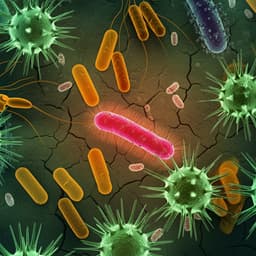
Veterinary Science
Re-thinking public health: Towards a new scientific logic of routine animal health care in European industrial farming
C. Bellet, L. Hamilton, et al.
Explore a groundbreaking study that challenges the conventional model of chronic animal disease management in European industrial farming. Led by Camille Bellet, Lindsay Hamilton, and Jonathan Rushton, this research highlights the critical need to integrate the One Health approach into routine animal health care, emphasizing the interconnections between animal well-being and public health.
Playback language: English
Related Publications
Explore these studies to deepen your understanding of the subject.







